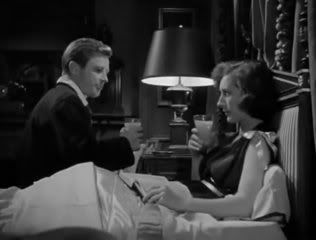You think it's easy to kill somebody? It takes time and patience and a strong stomach.

In 1951, the same year he directed the science fiction classic The Day the Earth Stood Still, Robert Wise made the less-heralded film noir The House on Telegraph Hill. Of the two, House was the one that was actually nominated for an Academy Award (for Best Art Direction), but it's pretty clear why Day was the one that stayed in the public's consciousness. Narrated by a Polish concentration camp survivor (played by Italian actress Valentina Cortese), the film finds her assuming the identity of a dead woman in the hopes of gaining passage to the United States. There are complications, though. For starters, the woman had a son who was shipped off to America to live with a distant relative at the start of the war when he was just a baby. Second, that distant relative has died in the interim, leaving the boy in the care of Richard Basehart. Third, when Cortese meets Basehart they fall in love and get married, but there's something off about him right from the start. May be his habit of drinking a full glass of orange juice before going to bed. I don't care how much of a native Californian you are, that's a bizarre bedtime ritual.
Anyway, Cortese's attempts to bond with her not-son (Gordon Gebert) are stymied at every turn by his governess (Fay Baker), who resents her role being usurped. And Cortese thinks the jig is up when she meets one of Basehart's acquaintances (William Lundigan), who just so happened to be there when her camp was liberated. Even so, he's the only one she feels she can turn to when an attempt is made on her life (San Francisco is a bad town to have your brakes go out on you), and it isn't long before he's putting the moves on her. The thing that confuses me is why she never suspects Baker. You'd think she'd be at the top of the list once the fur starts flying.